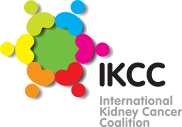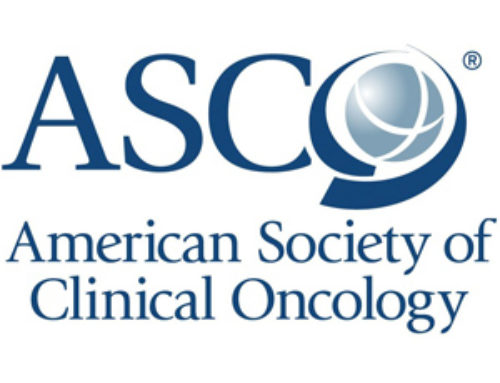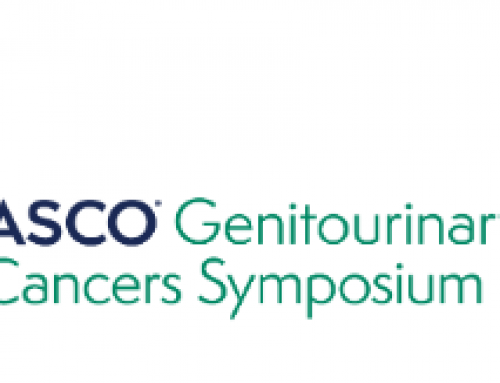The American Society of Clinical Oncology Symposium (ASCO) annual conference was held in Chicago, USA May 31-June 4 2019, and was attended by over 40,000 cancer researchers, clinicians, patient advocates and others. In this report we will highlight some of the presentations which were of particular interest with respect to the kidney cancer community.
Note: The following summary was prepared by IKCC for the benefit of patient organisations who focus on kidney cancer. While this summary has been medically reviewed, the information contained herein is based upon public data shared at this meeting and is not intended to be exhaustive. Patients should ask their physician about any information that pertains to their care.
2018 and 2019 will go down in history as watershed years for kidney cancer, due to multiple new drug approvals. ASCO 2019 represented the tail end of this recent flurry of events. There were no late-breaking clinical trials. Instead we saw a set of presentations that consolidated our understanding of the newly approved agents, providing more colour and context. Highlights included studies that looked at the role of newer therapies in the treatment of patients with sarcomatoid tumours and brain metastases, and a trial that looked at the role of targeted therapy in patients with fully resected metastatic disease.
Sarcomatoid Tumours
There were three presentations that assessed the response rates of patients with intermediate/poor risk features or sarcomatoid histologies to checkpoint antibody therapies, also known as immune oncology or IO therapy (Abstracts 4500, 4512, 4513). These three abstracts describe treatment of patients bearing sarcomatoid tumours with pembrolizumab plus axitinib, atezolizumab plus bevacizumab, and ipilimumab plus nivolumab respectively. Presence of sarcomatoid cells in a tumour is typically associated with a worse prognosis, and patients with sarcomatoid tumours do not respond as well to targeted drugs like sunitinib or pazopanib. However, sarcomatoid tumours typically harbour more immune cells, and we see in each of the first three abstracts that patients with sarcomatoid kidney tumours respond to combinations including IO agents considerably better than to sunitinib alone, with complete disappearance of disease in a small but significant percentage of cases. These findings are truly good news for patients that in the past did not have any good treatment options.
Brain Metastases
The management of brain metastases is an ongoing major dilemma in patients with kidney cancer, in particular when patients have too many spots to undergo focused beam radiation (also referred to as Gamma knife treatment, or stereotactic radiosurgery). These patients then face treatment with what is referred to as whole brain radiation, which is neither very effective nor well tolerated. Additionally, patients with untreated brain metastases have been consistently excluded from many clinical trials, so we have little information on how well their brain metastases may respond to newer therapies. Abstract 4517 describes response to ipilimumab plus nivolumab in a small, 28 patient study of patients with metastatic kidney cancer who have brain metastases. The response rates were around 30 percent, which is quite good in this setting, and toxicities were not different from what has been previously seen with this drug regimen. Although more work needs to be done, these data are encouraging for kidney cancer patients with brain metastases.
Quality of Life
Quality of life using the new IO agents was also reported on. Abstract 4515 described patient reported outcomes with either atezolizumab alone or atezolizumab plus bevacizumab compared to sunitinib in the IMmotion 150 study. Not surprisingly, both atezolizumab and atezolizumab plus bevacizumab were better tolerated than sunitinib.
Patients with advanced melanoma have been taking first-line nivolumab with or without ipilimumab for the longest time of all cancer patients. Two abstracts (9551 and 9568) looked at long-term quality of life (4 years later) of patients that were enrolled in the CheckMate 067 trial, reported in 2015. The authors of both studies collected patient-reported outcomes in 945 patients, and concluded that long-term quality of life was maintained during and after treatment with nivolumab +/- ipilimumab. By extrapolation, this is of interest to kidney cancer patients who will hopefully experience similar results.
Treatment following Metastectomy (Surgery to Remove Metastases)
Abstract 4502 described a randomised study looking at the effectiveness of giving pazopanib to patients with metastatic kidney cancer who were rendered free of disease with surgery. Although these individuals don’t have obvious disease remaining on their scans, they are at high risk of developing new metastatic sites in the future, and the idea behind this study is that some form of treatment may decrease that risk. Unfortunately, this study did not show any benefit to receiving a year of pazopanib versus a placebo, and in fact highlighted some potential harms of this approach. As a result, we can likely lay to rest the idea of using blood vessel targeting or antiangiogenic agents except in the context of metastatic disease where they have been proven to be effective.
Summary
In summary, multiple new drugs and drug combinations are now available for patients with metastatic kidney cancer, and these new choices provide an unprecedented level of effectiveness while maintaining a reasonable quality of life in most individuals receiving these therapies. We learned at ASCO 2019 that these combination treatments provide benefit in once difficult-to-treat subgroups of kidney cancer, including for patients with sarcomatoid kidney cancers, and patients with brain metastases. We also learned at ASCO 2019 that one of the older drugs, pazopanib, does not prevent a second relapse of disease after surgical removal of metastases. We look forward to the next few years where we can build on the recent exciting advances in therapy, with a particular focus on increasing the percentage of patients who are truly cured of metastatic kidney cancer.



